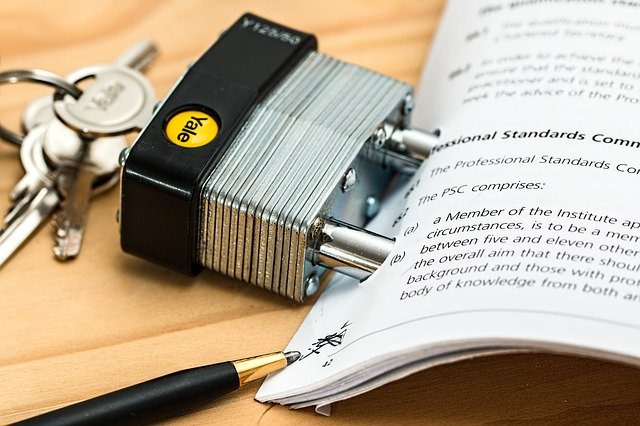
As a small business owner, you’ve probably heard the term surety bonds being thrown around quite a lot. In addition, many industries require this type of bond as a part of the licensing process. Therefore, it might be a good idea to learn more about them and what they can do for your startup. In this article, you will find 6 things every entrepreneur needs to know about surety bonds.
1. What Is a Surety Bond?
A surety bond is a three-party agreement between a surety company, obligee, and principal. This document guarantees that the principal (contractor) will fulfill its obligations towards the obligee (client). In this transaction, the surety company acts as a third-party guarantor that protects the interests of the two parties. Furthermore, if the obligee files a valid claim against the bond, this company will have to pay the penalty charges.
As you can see, surety bonds are there to establish good relationships between the obligee and principal. Furthermore, they prevent contractors from acting irresponsibly and purely in their own interest. Namely, the principals have to pay a premium that can range from 1 to 10 percent of the bond amount, depending on their financial strength and the type of bond required. In addition, in the event of a claim, they will need to reimburse the surety company for the penalty charges.
2. Different Types of Surety Bonds
Broadly speaking, there are four types of surety bonds. License and permit bonds protect customers by assuring them that the business will adhere to all applicable laws and regulations. Contractor bonds guarantee that a contractor will comply with all the requirements of their contract with a client. Fidelity bonds protect a company against the malpractices of certain employees that can lead to financial losses. Finally, court bonds ensure that the principal will fulfill their responsibilities in front of a court of law.
3. Surety Bonds Are Not Insurance
Surety bonds are used to protect clients against risk, so they are often regarded as a form of insurance. In addition, under the current U.S. legislation on surety bonds, they are, for the most part, regulated as an insurance policy. However, contrary to popular belief, surety bonds are not insurance. Furthermore, there are several key differences between surety bonds and insurance policies.
First of all, unlike insurance, surety bonds do not secure the buyer. Instead, their main goal is to protect another party the buyer is working with. Secondly, in case of any misfortune, insurance companies usually cover all of the client’s losses themselves. On the other hand, the bond buyers are the ones liable for the financial consequences if they breach the contract they have with their partners. Finally, while insurance premium is used to cover any potential losses, surety premium is a guarantee that the principal will fulfill their obligations.
4. Do You Need Them?
A simple answer to this question would be — it depends. Namely, the industry that your startup is in will determine if you need surety bonds or not. In addition, regulations concerning surety bonds are different from state to state, which means you’ll also have to consider your local legislation. Generally speaking, some professions for which you’ll need surety include constructors, auto dealers, mortgage brokers, freight brokers, insurance adjusters, etc.
Furthermore, there are businesses for which surety bond is highly recommended, even though they are not legally required to have it. These businesses include house cleaning, security, locksmith, pest control, etc. Finally, surety bonds are a great way to establish strong and long-lasting relationships with your customers and partners. Therefore, as an entrepreneur, you might benefit from having them even if you are not in any of those industries.
5. The Surety Bonding Process
The surety bonding process is far from complicated, as it involves only a couple of simple steps. First of all, the surety underwriters need to find out more about your company and carry out a credit check. Afterward, the surety company offers you a quote. This quote will largely depend on how your company did during the underwriting process. Finally, you pay the quote and fill out the paperwork.
6. Who Can Issue a Surety Bond?
Surety bonds are issued exclusively by surety companies. Although surety companies can operate on their own, they are usually divisions or subsidiaries of insurance companies. This comes as no surprise considering surety bonds and insurance policies are both regulated by state insurance departments. Note that not all bond companies sell directly to the public, as they often use bond agencies as middlemen.
A bond agency is a business that buys surety bonds from surety companies and sells them to principals. Bond agencies often work with several surety companies to get competitive quotes. However, if a claim is filed against your bond, you’ll have to skip your bond agency and work directly with the surety company that issued your bond. Furthermore, you might want to avoid bond agencies altogether, as agency services can make bonds more expensive.
Final Thoughts
Entering a world of entrepreneurship can be quite overwhelming, and surety bonds do not make things easier. Hopefully, this article cleared up at least some of the confusion regarding the surety bonds. So, check your local, state, and federal legislation and regulations to see if your business needs them. And if the answer is yes, surety companies such as JW Surety Bonds will be there to help you.
The post 6 Things Every Entrepreneur Needs to Know About Surety Bonds appeared first on Entrepreneurship Life.

-------------------------------------
By: Carson Derrow
Title: 6 Things Every Entrepreneur Needs to Know About Surety Bonds
Sourced From: feedproxy.google.com/~r/entrepreneurshiplife/feed/~3/S0k_hrXdR3I/
Published Date: Thu, 30 Sep 2021 19:30:15 +0000
Did you miss our previous article...
https://coachingbusinessowners.com/startup/how-to-start-a-pool-cleaning-business-8-easy-steps-to-follow






